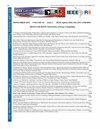FreeRTOS Application in a Real-Time Air Quality Monitoring Architecture for Smart Campus
IF 1.3
4区 工程技术
Q3 COMPUTER SCIENCE, INFORMATION SYSTEMS
引用次数: 0
Abstract
Monitoring air quality in smart campuses is essential for safeguarding the health of the academic community, as air pollution in university environments can lead to respiratory and cardiac issues. While the Internet of Things (IoT) offers a suitable solution for monitoring and notifying about air quality in smart campuses, it is of paramount importance that these notifications occur in real-time to ensure information reaches users with minimal latency. This paper presents an architecture for collecting, storing, and notifying about atmospheric pollutants in a smart campus and analyzes the use of Real-Time Operating Systems (RTOS) for managing the system. The evaluation focuses on IoT technologies, represented by the end node, gateway, and cloud server. The experimental results show that using RTOS reduces the average transmission interval by 37.5% and achieves higher transmission and reception throughput compared to non-real-time operating systems. For instance, in a monitored location, the transmission and reception throughput reached approximately 178.23 and 164.18 with RTOS, compared to 110.97 and 99.41 without RTOS, respectively.FreeRTOS在智能校园空气质量实时监测体系结构中的应用
监测智能校园的空气质量对于维护学术界的健康至关重要,因为大学环境中的空气污染会导致呼吸和心脏问题。虽然物联网(IoT)为智能校园的空气质量监测和通知提供了合适的解决方案,但至关重要的是,这些通知必须实时发生,以确保信息以最小的延迟到达用户。本文提出了一种智能校园大气污染物收集、存储和通知的体系结构,并分析了实时操作系统(RTOS)对系统管理的使用。评估重点关注以终端节点、网关和云服务器为代表的物联网技术。实验结果表明,与非实时操作系统相比,使用实时操作系统可将平均传输间隔缩短37.5%,实现更高的收发吞吐量。例如,在一个被监控的位置,使用RTOS时,发送和接收吞吐量分别约为178.23和164.18,而没有使用RTOS时,分别为110.97和99.41。
本文章由计算机程序翻译,如有差异,请以英文原文为准。
求助全文
约1分钟内获得全文
求助全文
来源期刊

IEEE Latin America Transactions
COMPUTER SCIENCE, INFORMATION SYSTEMS-ENGINEERING, ELECTRICAL & ELECTRONIC
CiteScore
3.50
自引率
7.70%
发文量
192
审稿时长
3-8 weeks
期刊介绍:
IEEE Latin America Transactions (IEEE LATAM) is an interdisciplinary journal focused on the dissemination of original and quality research papers / review articles in Spanish and Portuguese of emerging topics in three main areas: Computing, Electric Energy and Electronics. Some of the sub-areas of the journal are, but not limited to: Automatic control, communications, instrumentation, artificial intelligence, power and industrial electronics, fault diagnosis and detection, transportation electrification, internet of things, electrical machines, circuits and systems, biomedicine and biomedical / haptic applications, secure communications, robotics, sensors and actuators, computer networks, smart grids, among others.
 求助内容:
求助内容: 应助结果提醒方式:
应助结果提醒方式:


